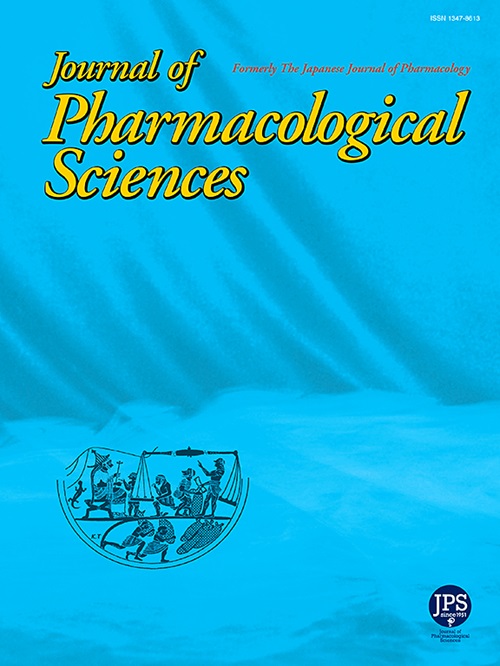Subacute intranasal oxytocin improves neurological recovery after ischemic stroke
IF 2.9
3区 医学
Q2 PHARMACOLOGY & PHARMACY
引用次数: 0
Abstract
Oxytocin (OXT) is a neuropeptide known for its anti-inflammatory and neuroprotective properties; however, its role in post-stroke recovery remains poorly defined. In this study, we investigated whether intranasal OXT administration during the subacute phase of stroke improves neurological outcomes and modulates microglial responses. Male mice underwent permanent middle cerebral artery occlusion and received intranasal OXT (300 ng/g) or saline on days 3 and 5 post-stroke. Neurological function was assessed using the modified neurological severity score; infarct volume was evaluated through hematoxylin-eosin (HE) staining, and survival rates were monitored until day 7. Immunofluorescence was used to assess microglial polarization in the peri-infarct region. OXT-treated mice showed significantly greater functional improvement and higher survival rates than saline-treated controls. Infarct volume was significantly reduced, and microglial polarization was altered by OXT, with a decrease in pro-inflammatory M1-type markers and an increase in anti-inflammatory M2-type markers. These findings demonstrate that OXT promotes neurological recovery through anti-inflammatory and neuroprotective mechanisms. Given its feasibility as a non-invasive delivery method, intranasal OXT may offer a promising therapeutic approach to enhance post-stroke neurorepair.
亚急性鼻内催产素促进缺血性脑卒中后神经系统恢复
催产素(OXT)是一种神经肽,以其抗炎和神经保护特性而闻名;然而,其在中风后恢复中的作用仍不明确。在这项研究中,我们调查了在中风亚急性期鼻内给予OXT是否能改善神经预后并调节小胶质细胞反应。雄性小鼠在脑卒中后第3天和第5天接受永久性大脑中动脉闭塞,并鼻内注射OXT (300 ng/g)或生理盐水。采用改良的神经功能严重程度评分评估神经功能;通过苏木精-伊红(HE)染色评估梗死体积,并监测生存率至第7天。免疫荧光法用于评估梗死周围区域的小胶质细胞极化。与盐水处理的对照组相比,oxt处理的小鼠表现出更大的功能改善和更高的存活率。OXT显著减少梗死体积,改变小胶质细胞极化,促炎m1型标记物减少,抗炎m2型标记物增加。这些发现表明,OXT通过抗炎和神经保护机制促进神经恢复。鉴于其作为非侵入性给药方法的可行性,鼻内OXT可能为增强脑卒中后神经修复提供一种有希望的治疗方法。
本文章由计算机程序翻译,如有差异,请以英文原文为准。
求助全文
约1分钟内获得全文
求助全文
来源期刊
CiteScore
6.20
自引率
2.90%
发文量
104
审稿时长
31 days
期刊介绍:
Journal of Pharmacological Sciences (JPS) is an international open access journal intended for the advancement of pharmacological sciences in the world. The Journal welcomes submissions in all fields of experimental and clinical pharmacology, including neuroscience, and biochemical, cellular, and molecular pharmacology for publication as Reviews, Full Papers or Short Communications. Short Communications are short research article intended to provide novel and exciting pharmacological findings. Manuscripts concerning descriptive case reports, pharmacokinetic and pharmacodynamic studies without pharmacological mechanism and dose-response determinations are not acceptable and will be rejected without peer review. The ethnopharmacological studies are also out of the scope of this journal. Furthermore, JPS does not publish work on the actions of biological extracts unknown chemical composition.

 求助内容:
求助内容: 应助结果提醒方式:
应助结果提醒方式:


